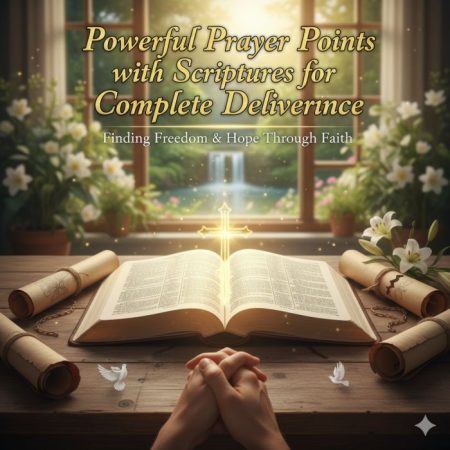Introduction to Meena Alexander
Have you ever encountered a writer whose words feel like a bridge between worlds? Meet Meena Alexander, a poet, scholar, and memoirist whose work dances between continents, cultures, and identities. Born in India, raised in Sudan, and later settling in the United States, Alexander’s life was a tapestry of migrations. Her writing—raw, lyrical, and deeply personal—explores themes of displacement, feminism, and the search for belonging. In this article, we’ll unravel the layers of her extraordinary journey and the legacy she left behind.
Early Life and Formative Years
Childhood in Kerala, India
Imagine a young girl sitting under the lush coconut trees of Kerala, scribbling verses in a notebook. That girl was Meena Alexander, born in 1951 in Allahabad but rooted in Kerala’s tropical landscape. Her early years were steeped in the rhythms of Malayalam poetry and Hindu myths, which later seeped into her writing. But this idyllic phase was short-lived.
Adolescence in Sudan
At 11, Alexander’s family moved to Sudan, a shift that upended her sense of home. Suddenly, she was navigating Arabic, French, and English in Khartoum’s multicultural milieu. This collision of languages and cultures became a cornerstone of her identity—a theme she’d revisit in poems like “House of a Thousand Doors.”
Higher Education in England and the United States
By her late teens, Meena Alexander was studying in England, earning a PhD in Romantic literature. Later, she moved to New York, where she taught at Hunter College and the CUNY Graduate Center. These academic pursuits didn’t just shape her career—they deepened her exploration of dislocation and selfhood.
Literary Career and Evolution
Early Works and Poetic Beginnings
Alexander’s first poetry collection, The Bird’s Bright Wing (1976), announced her as a bold new voice. Her verses blended Indian sensibilities with modernist fragmentation—think of it as a dance between Tagore and T.S. Eliot. Critics praised her ability to weave personal pain with political urgency, especially in poems addressing postcolonial trauma.
Transition to Prose and Memoirs
In the 1990s, Alexander shifted to prose, penning her seminal memoir Fault Lines (1993). Here, she grappled with fragmented memories of her nomadic life, asking: Can a fractured past ever coalesce into a coherent self? The book’s success cemented her reputation as a master of hybrid genres.
Major Works and Contributions
“Fault Lines: A Memoir”
Fault Lines isn’t just a memoir—it’s a seismic exploration of identity. Alexander rewrote it twice, each version reflecting her evolving understanding of displacement.
Themes of Displacement and Identity
The memoir’s title metaphor—fault lines—captures how migration splits the self into shards. Yet, Alexander doesn’t wallow in brokenness. Instead, she stitches her identity from fragments, much like a kintsugi vase repaired with gold.
“Illiterate Heart” and Poetic Innovations
Her 2002 poetry collection Illiterate Heart delves into love and loss with startling intimacy. In “Blue Lotus,” she writes: “I carry my body like a cup / spilling over with the past.” The poems here are both confessional and universal, blurring the line between the self and the world.
“The Shock of Arrival: Reflections on Postcolonial Experience”
This 1996 essay collection dissects the immigrant’s dilemma: How do you belong when you’re perpetually “arriving”? Alexander argues that dislocation isn’t a weakness but a lens to see the world anew—a perspective that resonates deeply in today’s globalized era.
Recurring Themes in Alexander’s Writing
Displacement and Migration
If Alexander’s work has a heartbeat, it’s the pulse of displacement. Her characters (often stand-ins for herself) are eternal wanderers, caught between “here” and “there.” Yet, she reframes migration not as loss but as a creative force—a way to build identity from multiplicity.
Feminism and Gendtity and Cultural Hybridity
Growing up in postcolonial India and Sudan, Alexander witnessed the scars of empire firsthand. Her work challenges monolithic notions of culture, insisting that hybridity—mixing languages, traditions, and histories—is a form of resistance.
Alexander’s Role as a Feminist Voice
Challenging Patriarchal Norms
Alexander didn’t just write about feminism—she lived it. As a South Asian woman in academia, she battled stereotypes, once quipping: “They expected me to teach ‘exotic’ literature, but I gave them Wordsworth with a twist.”
Representation of Female Agency
In Fault Lines, she recounts her grandmother’s defiance against societal norms—a story that mirrors her own struggles. For Alexander, agency isn’t about grand gestures; it’s the quiet act of writing oneself into existence.
The Immigrant Experience in Her Poetry
Navigating Cultural Dichotomies
Alexander’s poetry often feels like a conversation between worlds. In “Migrant Wind,” she writes: “I am a comma / spliced between two sentences.” That “comma” symbolizes the immigrant’s liminality—always pausing, never fully stopping.
Language as a Bridge and Barrier
Multilingualism pulses through her work. She’d sprinkle Malayalam or Arabic into English verses, creating a mosaic of sounds. Yet, language also alienates. In “Night-Scene, the Garden,” she admits: “Words fail me / like a rusted key.”
Critical Reception and Awards
Literary Criticism and Scholarly Analysis
Scholars laud Meena Alexander’s “poetics of dislocation,” linking her to giants like Salman Rushdie and Jhumpa Lahiri. Yet, some critics argue her hybrid style resists easy categorization—a testament to its originality.
Notable Awards and Recognitions
Her accolades include a PEN Open Book Award and fellowships from the Guggenheim Foundation and the Fulbright Program. These honors reflect her impact on both literary and academic landscapes.
Legacy and Influence on Contemporary Literature
Inspiring Diaspora Writers
Today’s diaspora writers—Ocean Vuong, Fatimah Asghar—cite Alexander as a trailblazer. Her courage to write fractured narratives paved the way for stories that refuse tidy endings.
Academic Impact and Teaching Career
At Hunter College, Alexander mentored generations of writers, urging them to “write into the fissures” of their identities. Her classrooms were incubators for radical creativity.
Personal Life and Struggles
Balancing Multiple Identities
Alexander once called herself “a poet with a hyphenated life.” Juggling roles as a mother, academic, and writer wasn’t easy. Yet, she turned these tensions into art, proving that chaos can birth beauty.
Health Challenges and Resilience
In her final years, Alexander battled cancer, a struggle she documented in Atmospheric Embroidery (2018). Even in pain, her words shimmered with resilience: “The body may falter, but the voice remains.”
Meena Alexander’s Writing Style
Lyrical Prose and Poetic Imagery
Alexander’s prose reads like poetry—fluid, vivid, and rhythmic. In Fault Lines, she describes memory as “a river with no banks,” a metaphor that lingers long after the page turns.
Use of Multilingual Elements
By weaving Malayalam phrases into English texts, she created a linguistic kaleidoscope. This wasn’t just stylistic flair; it was a political act, reclaiming colonized languages.
Conclusion: The Eternal Voice of Meena Alexander
Meena Alexander passed away in 2018, but her voice endures—a beacon for anyone navigating fractured identities. Her work teaches us that dislocation isn’t a void but a fertile ground for creativity. As she wrote in Illiterate Heart: “We are all immigrants of the soul.”
FAQs
- What is Meena Alexander’s most famous work?
Fault Lines: A Memoir remains her most acclaimed book, lauded for its raw exploration of identity and migration. - How did Meena Alexander’s upbringing influence her writing?
Her childhood in Kerala, adolescence in Sudan, and academic life in the West shaped her themes of displacement and cultural hybridity. - Was Meena Alexander involved in activism?
While not a traditional activist, her writing challenged patriarchal and colonial norms, making her a literary advocate for marginalized voices. - What awards did Meena Alexander win?
She received the PEN Open Book Award, Guggenheim Fellowship, and Fulbright Scholarship, among others. - How can I start reading Meena Alexander’s poetry?
Begin with Illiterate Heart or Atmospheric Embroidery—both showcase her lyrical intensity and thematic depth.






